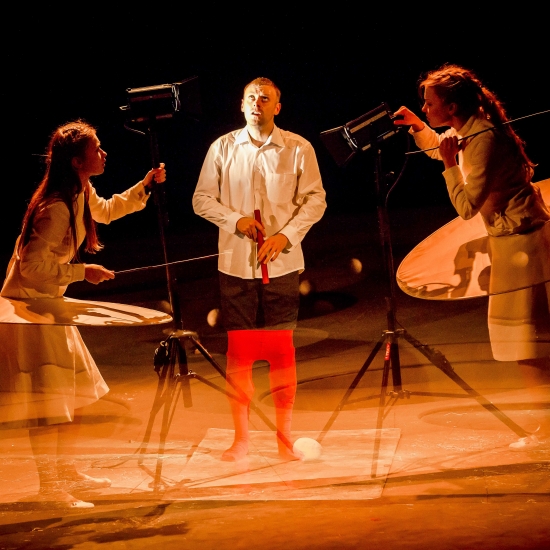Eimuntas Nekrošius
Director

photo Dmitrij Matvejev
Eimuntas Nekrošius (born 1952, Samogitia) graduated in directing from the State Institute of Theatre Arts in Moscow (now GITIS) before returning to Lithuania, where he made his directorial debut with A Taste of Honey by Shelagh Delaney (1977) at the State Youth Theatre in Vilnius. A few years later, he gained critical attention with his adaptations of prose. In the 1990s, Nekrošius staged his famous, canonical works that launched him unto major European stages: Mozart and Salieri, Don Juan and The Plague by Pushkin (1994); Three Sisters by Chekhov (1995); and Hamlet by Shakespeare (1997). He looked to dramatic texts for the ‘tenor of a performance’, the painterly and the musical before constructing complex associations, and used close reading to derive symbols and metaphors.
In 1998, Nekrošius founded his own company, Meno Fortas, which he leads to this day. His first production with Meno Fortas, which was also the first of his great Shakespearian adaptations, was Hamlet (1997). Macbeth followed in 1999 and Othello in 2000. Nekrošius’s work in the late 1990s and early 2000s revealed new ways of approaching text, becoming a benchmark for Lithuanian theatre. Contemporary directors of Shakespeare still enter into dialogue with these productions. Later major works include the Old Testament’s The Song of Songs (2004), Faust by Goethe (2006), Anna Karenina by Tolstoy (2008), Idiot by Dostoyevsky (2009) and Faust by Gounod (2010).
Nekrošius currently works in many countries including Austria, Italy, Israel, Russia, Switzerland, Argentina and the US. His work has been presented in Poland many times since 1986. In 1997, he won the Konrad Swinarski Award of Teatr magazine, becoming the first non-Polish director to claim this honour. In 2013, he staged Paweł Szymański’s opera Qudsja Zaher at the Polish National Opera in Warsaw.
